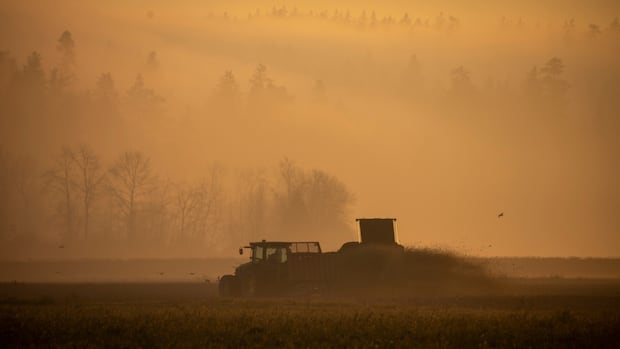Firefighters pulled out of Fort Smith, N.W.T., amid safety concerns

What you need to know about the N.W.T. wildfires:
- Evacuation orders issued for communities of Hay River, Kátł’odeeche First Nation, Fort Smith, Enterprise, Jean Marie River
- Evacuation orders issued for cabin and home owners on North Prosperous Lake, North Prelude Lake, all of River Lake and Highway 3 from kilometres 284 and 320
- Yellowknife city council declares local state of emergency; city is not under evacuation notice, alert or order
- Highway 1 is closed from the Alberta border to kilometre 140, Highway 2 is closed, Highway 3 is closed from kilometres 246 to 334, Highway 5 is closed and the Jean Marie River access road is closed
- Phone and internet interrupted through South Slave region; it will be at least 24 hours before communities back online, says NorthwesTel
- First responders pulled out of Fort Smith; relocating somewhere safer
- Canadian Armed Forces sending 124 soldiers to aid in territory’s wildfire response
Fire officials say first responders are being pulled out of Fort Smith, N.W.T., to relocate their base of operations somewhere safer.
The community is under an evacuation order and fire officials say the next 48 hours could see “extreme” fire behaviour due to weather and fuel conditions. That means it could keep spreading closer to Fort Smith and Fort Fitzgerald, Alta.
Parks Canada predicts the fire will reach Fort Smith by 8 p.m. Monday.
“There have been significant impacts to the area’s power supply, and the ability to continue to treat potable water, maintain communication lines, and healthcare services is no longer sustainable. This makes it very difficult for first responders to do their jobs safely,” reads an update posted online by fire officials Monday afternoon.
First responders including staff and contractors from Parks Canada, Alberta Wildfire, the N.W.T. government, and the town of Fort Smith were to begin relocating out of the community on Monday.
A “small complement of critical resources” will remain in the area, based at Fort Chipewyan and Salt Mountain. They’ll be working on ignition operations and structure protection.
No state of emergency declaration, minister says
Meantime, the territory’s environment minister said Monday that the N.W.T. has no need at this point to declare a state of emergency due to wildfires.
That’s despite fire threatening much of the southern territory, and five communities — representing an estimated 15 per cent of the territory’s population — being under evacuation orders.
Minister Shane Thompson says so far, the territory has had the resources it’s needed to deal with things.
“When we’re looking for the resources that we need, all it has been is a phone call and we’ve been able to do it,” he said, at a news conference on Monday afternoon.
On Monday, the N.W.T. government said 124 Canadian Armed Forces (CAF) soldiers will join fire crews to help mop up fires, freeing up other firefighters to continue the battle against significant blazes. The military is also expected to deploy a helicopter and a twin otter to help.
“So at this point in time, a state of emergency would not do anything but cause more stress,” Thompson said.
Meantime, the City of Yellowknife declared a local state of emergency on Monday afternoon. City officials said it allows the city to require contractors, who might have other contractual obligations, to help with firefighting efforts.
Wildfires grew significantly over the weekend, and as of Monday morning, evacuations had been ordered for Fort Smith, Salt River First Nation, Hay River, Kátł’odeeche First Nation, Enterprise, Jean Marie River, as well as cabin and home owners on North Prosperous Lake, North Prelude Lake, all of River Lake and on Highway 3 from kilometres 284 and 320
At least 24 hours before communities back online, says NorthwesTel
The fires have also damaged communications infrastructure in Enterprise, according to Imran Khan of NorthwesTel. He said a fibre line has been damaged in Enterprise, affecting communications infrastructure through the South Slave region.
As of Monday, Khan said service has been affected to Fort Providence, Fort Resolution, Fort Smith, Hay River and Jean Marie River and it would be at least 24 hours before those communities were back online.
Flames in N.W.T.’s South Slave region have sent people fleeing for their lives as roads are closed due to extreme danger. Officials are urging any remaining people in Hay River and Fort Smith to get out.
Khan also said NorthwesTel crews were preparing in case service to Yellowknife was affected, though he said technicians were primarily focused on restoring service where it’s been interrupted.
“We are in a state of readiness, and we are working through plans with respect to Yellowknife,” he said.
Thompson also confirmed Monday that 124 personnel from the Canadian military, along with several aircraft, would be arriving in the territory in the next day to help with the fires.
Asked about the potential cost of this year’s wildfire response, Thompson said it’s too soon to say but that it would certainly top $50 million.
“It’s going to be worse than 2014. We spent over $50 million in 2014, and it’s going to be worse,” he said.




